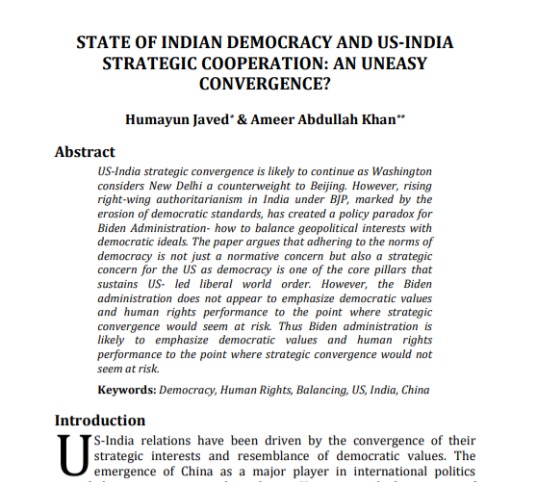STATE OF INDIAN DEMOCRACY AND US-INDIA STRATEGIC COOPERATION: AN UNEASY CONVERGENCE?
DOI:
https://doi.org/10.54690/jcs.v11i1.217Keywords:
Democracy, Human Rights, Balancing, US, India, ChinaAbstract
US-India strategic convergence is likely to continue as Washington considers New Delhi a counterweight to Beijing. However, rising
right-wing authoritarianism in India under BJP, marked by the erosion of democratic standards, has created a policy paradox for
Biden Administration- how to balance geopolitical interests with democratic ideals. The paper argues that adhering to the norms of
democracy is not just a normative concern but also a strategic concern for the US as democracy is one of the core pillars that
sustains US- led liberal world order. However, the Biden administration does not appear to emphasize democratic values
and human rights performance to the point where strategic convergence would seem at risk. Thus Biden administration is
likely to emphasize democratic values and human rights performance to the point where strategic convergence would not
seem at risk.
Keywords: Democracy, Human Rights, Balancing, US, India, China

Downloads
Published
How to Cite
Issue
Section
License
Copyright (c) 2022 National Defence University

This work is licensed under a Creative Commons Attribution-NonCommercial 4.0 International License.
License Terms








